by Adam Grybowski
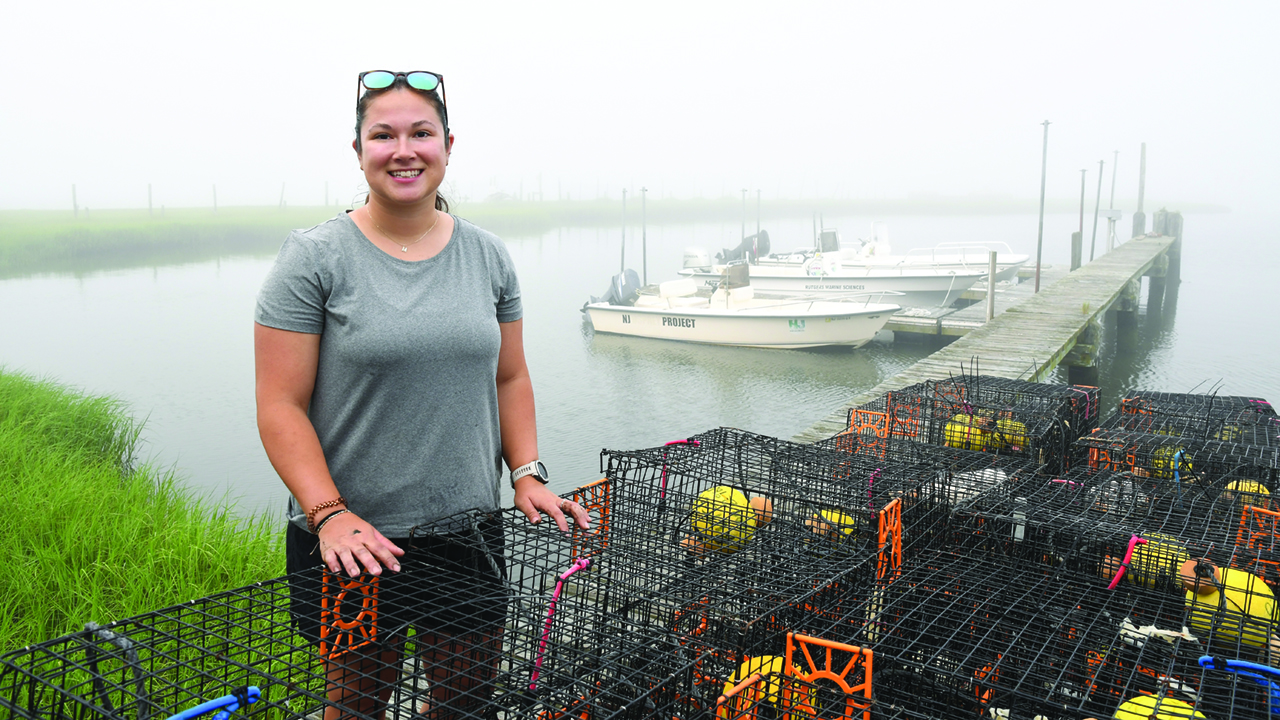
As the head laboratory assistant for the Rutgers Marine Field Station, one of Miranda Rosen’s ’17 regular tasks earlier this summer was to retrieve a set of traps sitting in the thick black mud on the bottom of the Hudson River. Every week from about July through September, she piloted a 24-foot boat with a crew made up of technicians and interns from the Field Station and the Hudson River Park Trust, which are collaborating on a five-year project examining efforts to increase the waterway’s biodiversity.
Black sea bass, blue crabs and oyster toadfish are among the limited number of species that reliably appear in the crew’s traps. Scientists are studying if the restoration of the Hudson’s once-thriving population of oysters, which have been decimated by pollution and overharvesting, will improve local water quality and increase the amount of sea life in the river.
Oysters are fantastically efficient at cleaning up water. A single adult oyster can filter as much as 50 gallons of water every day. Two years into the study, Rosen has observed new and unusual species showing up in the traps, such as pipefish, which have snakelike bodies, tube-shaped snouts and toothless mouths. “It’s so muddy down there, and the dissolved oxygen is really low, so any signs of life are a good thing,” she says.
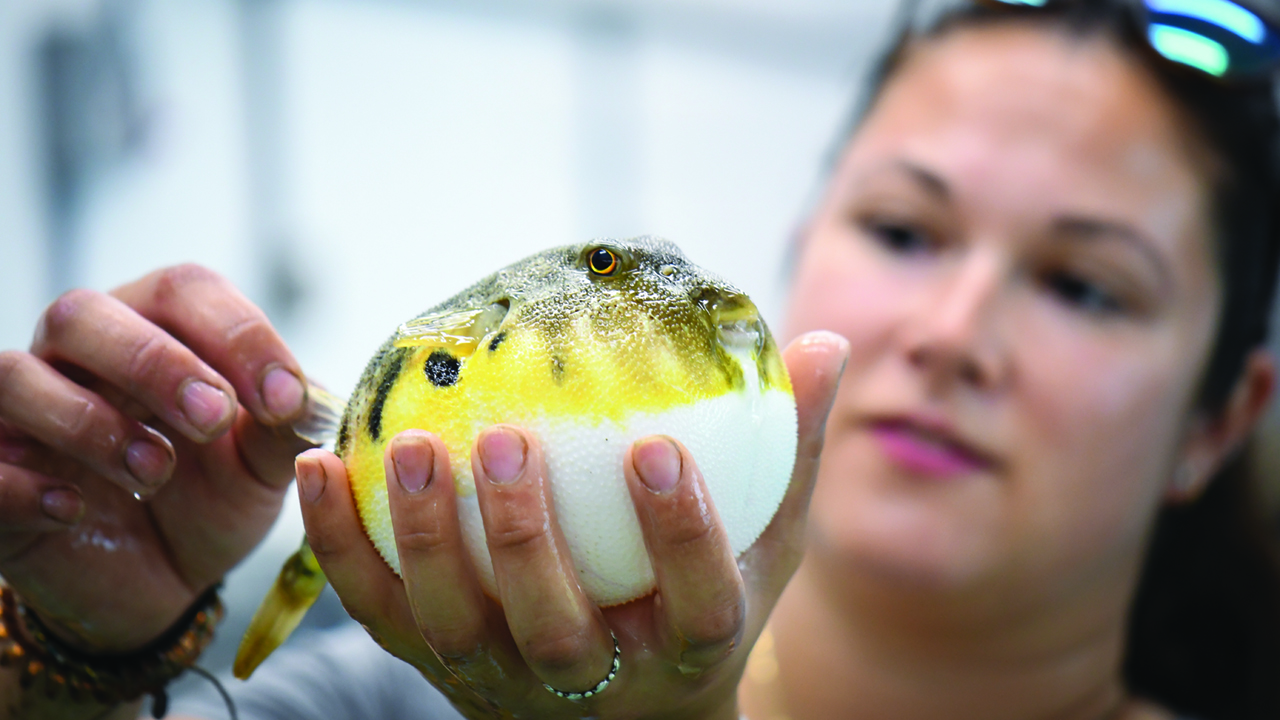
Despite the occasionally unfavorable conditions — the crew is often exposed to punishing heat and topsy-turvy wake created by ferries and other larger sea vessels — Rosen loves her job. It allows her to take a hands-on role in a process she believes is making a true difference in improving ecosystems, which ultimately benefits a wide range of animals and organisms.
“I like being the person out there who’s pulling up the net and counting the fish and then who’s also following up on the data and analysis in the lab,” says Rosen, who majored in marine sciences at Rider. “I’m part of every step that’s involved. And then seeing all of that work come together as a report is very gratifying.”
Rosen is an example of an individual who has combined an education in the sciences with a personal passion for animals and the environment to contribute to the greater good. She stands alongside many other Rider alumni. Besides conducting research, graduates also teach, work in mission-driven zoos and aquariums, and even find entrepreneurial ways to raise awareness about why conservation and biodiversity matter to everyone.
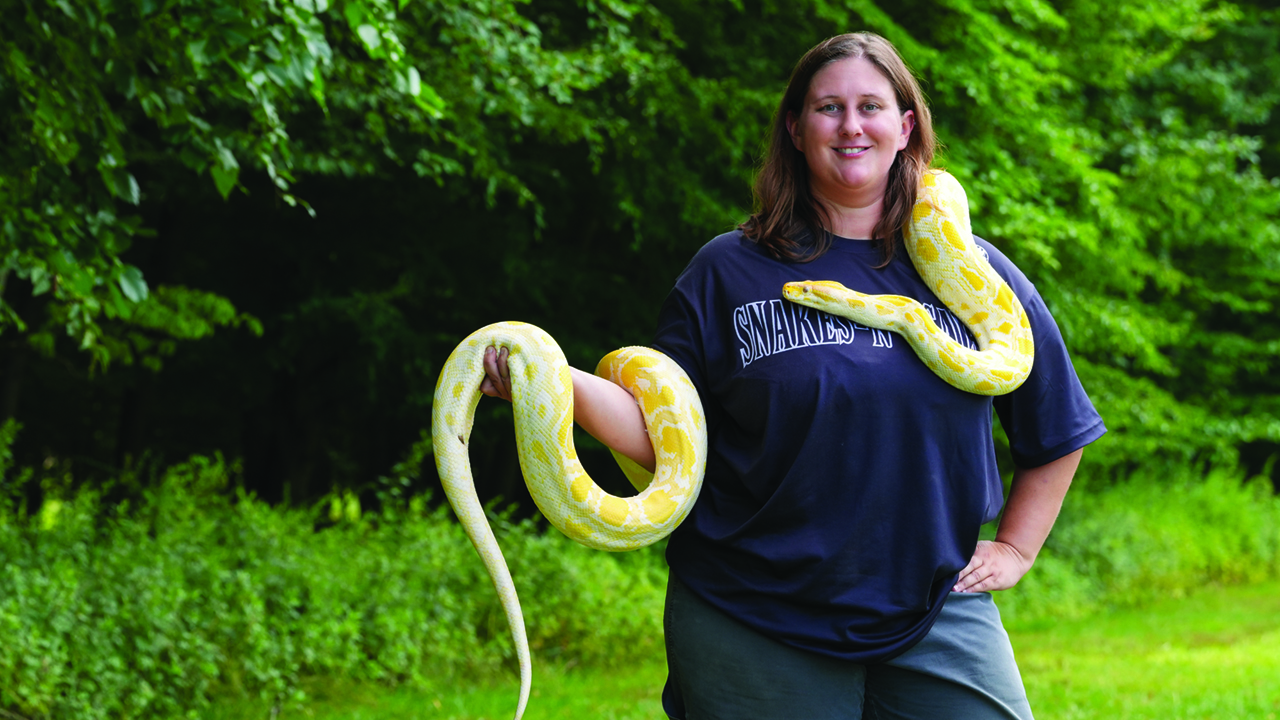
Since 2020, Erin Mellini ’08 has been the owner of Snakes-N-Scales, a business based in Randolph, New Jersey, that offers educational programs that feature snakes, lizards, turtles and other underappreciated animals. Mellini says an audience’s reaction to these misunderstood and occasionally maligned organisms is as predictable as a chameleon changing color. First, she elicits delight by showing off the adorable, approachable turtles. Then a sense of wariness rises when the lizards make an appearance. “And finally when we take out the snakes, that’s when the screaming starts,” she says.
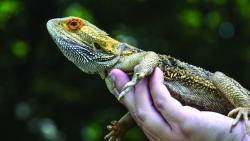
The drama has a purpose greater than mere entertainment. Through Snakes-N-Scales, Mellini adopts exotic pets that owners are no longer able to care for and gives them a home and a role in the company’s educational programs. Few of these animals are suitable as pets, or even legal in certain states. One of them, an Asian water monitor, is a reptile that can exceed 6 feet in length as an adult and weigh in the range of 70 to 100 pounds.
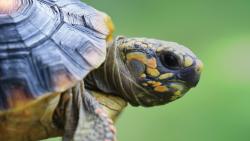
“I’m not sure what goes through some people’s heads when they get these animals as pets,” says Mellini, who majored in biopsychology (now called behavioral neuroscience) at Rider. “People think a nice thing to do is to let them go when they realize they can’t take care of them, but pets like this should not be released because we don’t have a suitable environment for them, and ones that are able to adapt can become invasive species. It’s very damaging.”
Like Mellini, Pamela Neeb Wade ’99 introduces young people to unfamiliar animals and often gives them their first hands-on experience with them. At the Monterey Bay Aquarium in Monterey, California, where she is the school programs manager, Wade says she and the staff live the institution’s mission to inspire conservation of the ocean. Many visitors to the aquarium who participate in the live animal programs that she oversees have never even seen the ocean, let alone the intriguing creatures they encounter at the aquarium, such as sharks, sea otters and penguins. For some programs, she takes teachers and teenagers into the ocean, kayaking on the bay. During others, she leads younger students below the surface, scuba diving in the Great Tide Pool.
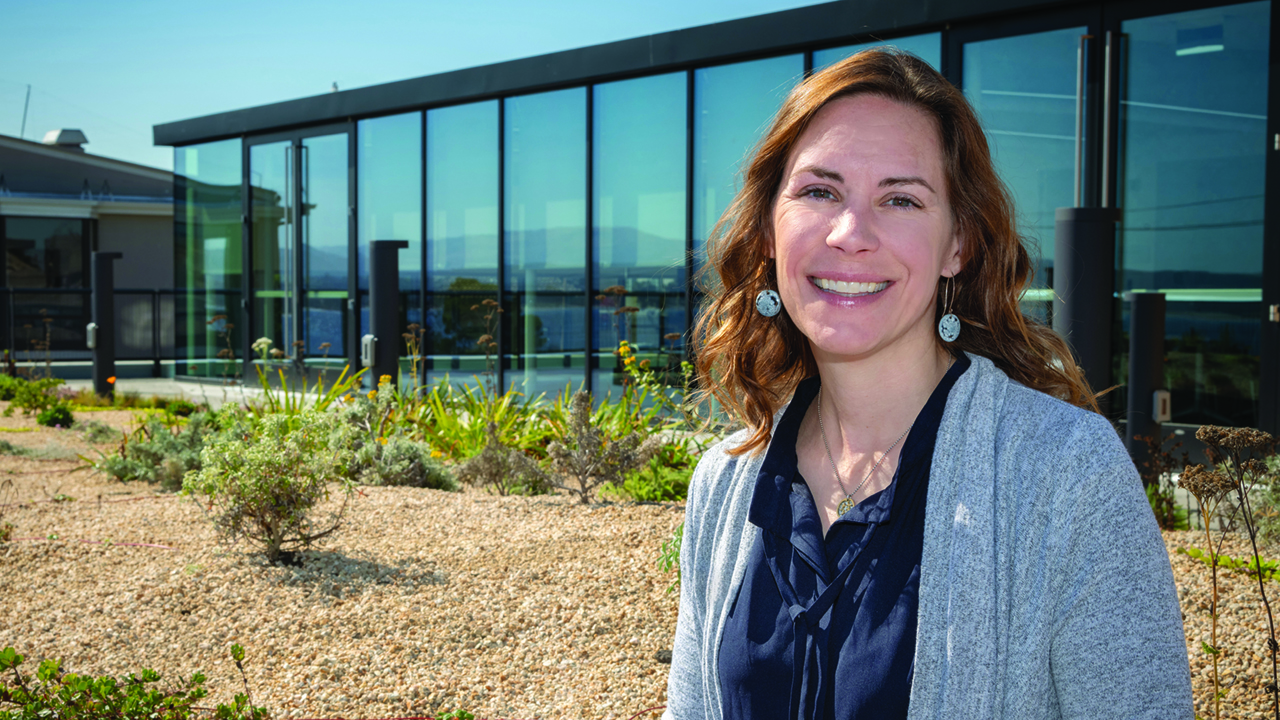
“It’s hard to put into words what happens when you have that first-hand experience in nature,” says Wade, who studied marine sciences at Rider. “It creates a connection and changes you on a very deep level.”
For all of the joy that’s gained when sharing these direct experiences with animals and nature, it can be hard to escape a concurrent sense of foreboding as climate change unleashes extreme heat, torrential storms and raging wildfires across the globe. Since first working at the Field Station as an intern in 2014, Rosen has watched the landscape literally transform in front of her eyes. Areas of marsh have rapidly turned sandy, and tidal flooding commonly prevents her and other workers from driving on the road that leads to their offices — the effects, she says, of rising sea levels.
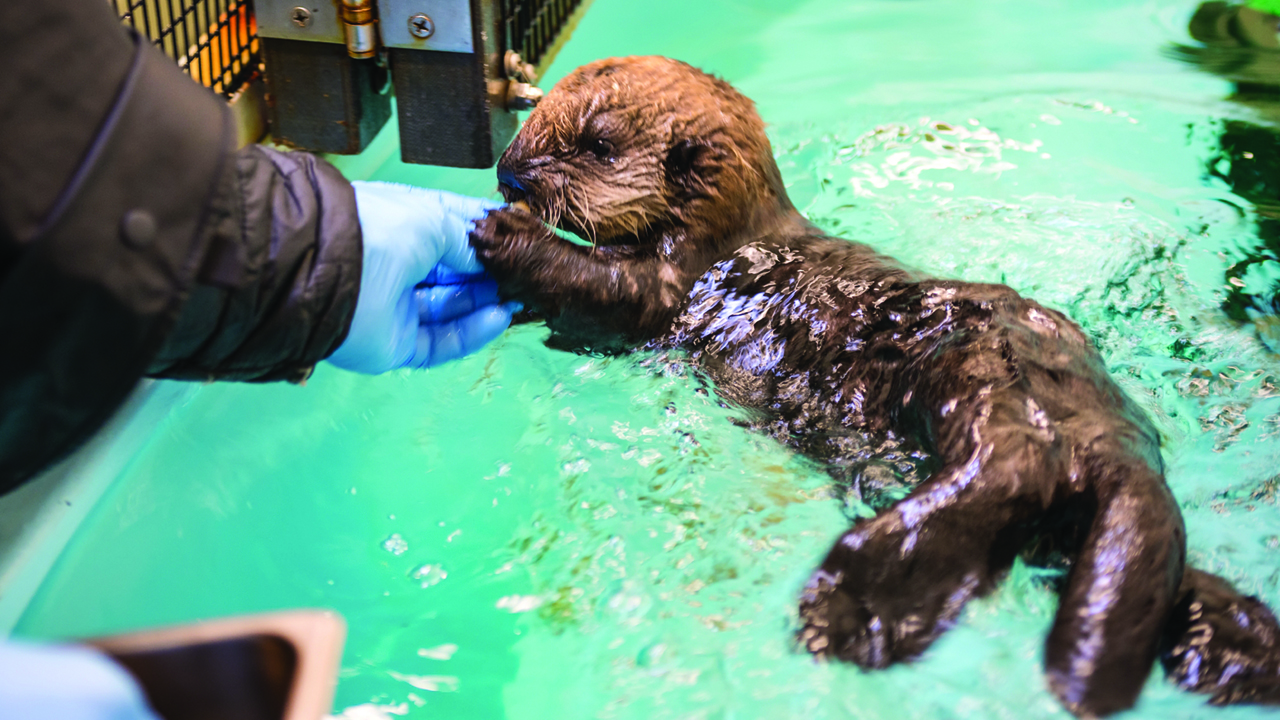
Wade says that though she feels a sense of urgency every single day, she is able to take some solace in the creativity and innovation of the students who participate in the aquarium’s programs. Although most of the programs she manages take place within the aquarium, she has overseen years-long outreach initiatives that have moved participants to real action, such as a group of middle schoolers who took their concerns about single-use plastics to the Monterey City Council.
“I feel so much hope because of these young people,” she says.
Likewise, Mellini is always impressed by how even her short programs can shift a person’s perspective. “Even if they were someone who said beforehand that they hate snakes, usually by the end most people will say, ‘I might not like them still, but I appreciate them and like what they do for the planet.’ My job is a fun way to convey that message, and the younger kids, they especially get it.”
